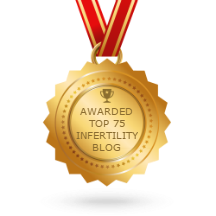Does Novel Coronavirus Make Breastfeeding Less Safe?
The last Indian Prime Ministerial address has conveyed the extension of the twenty-one days nationwide lockdown by another three weeks until Sunday, May 3, 2020. Where on one hand industrialists and business majors are worried about the uncertainty of market conditions, people are seriously concerned about the spread of the novel coronavirus and its impact on various age groups in the society. It is quite justifiable especially at a time when there is lack of clarity as to how and to what extent this virus can pose a threat to the continuance of human existence.
One of the chief concerns by people worldwide has been its effect on pregnant women particularly those who have recently delivered their newborns. The query is well-supported by the continued emphasis by pediatricians and gynecologists on healthy breastfeeding practices during the first six months of childbirth. The American Academy of Pediatrics advocates that breast milk is the best source of nutrition to babies and also helps in early development of a bond between the mother and child. However, the central issue of concern is what if a pregnant woman gets infected with COVID-19. Under such conditions, does breastfeeding create a threat of disease contraction by the child? In case it is so, what care should be taken to prevent the infection? The Centers for Disease Control and Prevention, US Department of Health and Human Services, has asserted that mother-to-child transmission of coronavirus during pregnancy is unlikely to happen. So far very few newborns have been tested positive shortly after their birth. But it is still unclear whether the transmission occurred during the pre-natal or post-natal stage. The virus has not been detected either in amniotic fluid or breast milk.
Realising the development of an early mother-child bond through breastfeeding, the World Health Organization has said that a newborn baby can be allowed to stay in the mother’s room even if she has been infected with coronavirus. However, it is inherent for the mother to strictly follow hygienic practices by wearing mask and washing hands with alcohol based hand-rub before each breastfeed.
Breast milk provides the best care and immunity to the child and reduces the future possibility of stunting and malnutrition. Considering the benefits of breastfeeding and the insignificant role of breast milk in the transmission of other respiratory viruses, the mother can continue breastfeeding, while applying all the necessary precautions. If a mother is too ill, she should be encouraged to express milk and give it to the child via a clean cup and/or spoon – all while following the same infection prevention methods.
Even though the corona virus outbreak has been imperative for raising concerns as to whether breastfeeding could affect infants, doctors and health experts around the world favour this practice as part of neonatal care and nutrition until they develop sound knowledge of coronavirus disease and the grounds of its spread through human-to-human transmission. Till then it is advisable to be in touch with the latest coronavirus updates from trusted sources and help prevent its spread by staying at home and following social distancing.
Tags: Breastfeeding, Coronavirus and Breastfeeding, COVID-19, shrikhande IVF center





 (+91) 880 557 7600
(+91) 880 557 7600
 Abhyankar Road, Dhantoli, NAGPUR-12
Abhyankar Road, Dhantoli, NAGPUR-12






Leave a Reply